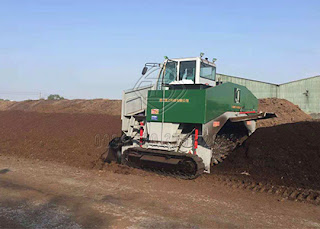WHY Should We COMPOST Horse Manure on the Farm?
You don't need to
invest much energy around excrement to get a handle on the numerous issues it
causes when it's not overseen appropriately. Smell and the "yuck
factor" are only the begin - crude compost is the perfect reproducing
ground for stable flies and different vermin. Overflow from fertilizer heaps
can likewise cause water quality issues for rivulets and wetlands just as for
drinking water, a genuine concern on the off chance that you have your very own
well.
Many pony ranches
discard their compost by spreading it over fields. Yet, that training can be
dangerous. Steeds should be avoided crisply spread touching territories since
they can get parasite hatchlings that bring forth in new compost. Additionally,
crude compost is high in nitrogen aggravates that can "consume" plant
establishes whenever connected in too high amounts, and the nitrogen overflow
can be harming to adjacent springs and lakes. Spreading is a choice just at
specific occasions of the year - abandoning you with developing heaps when the
climate is excessively wet or the ground is solidified.
Conversely,
fertilizing the soil is the high-impact disintegration of waste - it happens
within the sight of oxygen and a little dampness. This procedure offers a few
focal points over both anaerobic deterioration and the spreading of crude
excrement:
? Quicker
deterioration. With the correct equalization of air and dampness, the useful
microorganisms accelerate the way toward separating waste.
? Less bugs and
parasites. The microorganisms that make fertilizer create enormous measures of
warmth - enough to slaughter fly hatchlings, parasite eggs and weed seeds just
as malady causing microbes, for example, salmonella and E. coli.
? Progressively
powerful compost. In crude fertilizer, nitrogen and different mixes are in
substance shapes that weaken in water and keep running off effectively.
Fertilizing the soil, conversely, ties nitrogen?into natural structures that
stay in the ground longer and are all the more promptly accessible to plant
roots.
? Less smell.
Treating the soil likewise creates less of the poisonous gases that reason
genuine scents around unmanaged compost heaps. An appropriately overseen
fertilizer heap should smell natural and charming.
? Littler volume.
Treating the soil slow down waste diminishes the all out volume by around 50
percent, and the subsequent dull, brittle material is lightweight and simple to
deal with. In this process, regularly turning with compost turner is
important.
Completed
fertilizer is a heavenly soil change for greenhouses, scenes and fields. It is
injected with miniaturized scale and macronutrients that work in a period
discharge design, and it includes "life" to soils as gainful
microorganisms and organisms. Research has demonstrated that fertilizer makes
plants more advantageous and more sickness safe and that only one application
can have benefits enduring at least five years. Fertilizer additionally enables
the dirt to hold dampness, which is significant amid a dry spell. In addition,
if you have much compost, you can also make commercial organic fertilizer pellets.




Comments
Post a Comment